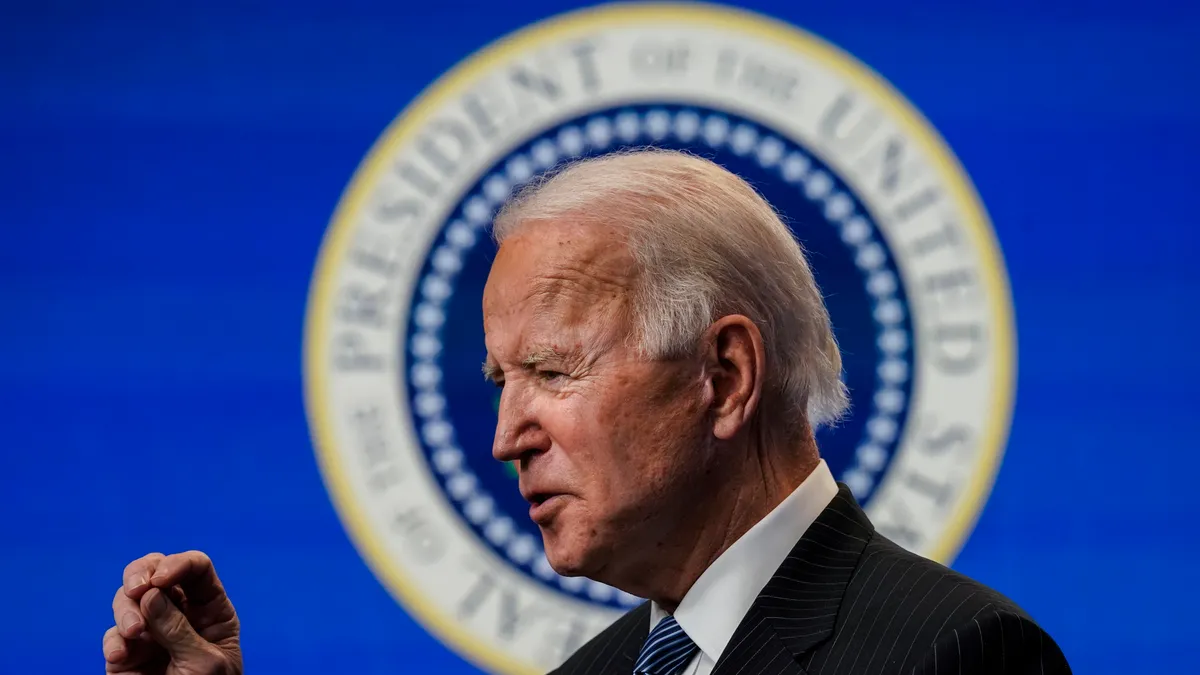Dive Brief:
- Twenty attorneys general urged the Biden administration last week to extend and modify temporary changes to the Public Service Loan Forgiveness program that are meant to help borrowers receive debt relief.
- Under the PSLF program, borrowers who become public servants — such as teachers, nurses or police officers — can have their outstanding balances forgiven after they've made a decade of qualifying payments. However, rampant issues within the program led to high denial rates for debt relief.
- The U.S. Department of Education announced a PSLF waiver last year that counts all payments certain borrowers made toward forgiveness, including those that wouldn’t have previously qualified for the program. The attorneys general argued in a Friday letter that the waiver’s deadline should be extended before it expires in October.
Dive Insight:
Lawmakers created the PSLF program in 2007 to provide debt relief to public service workers. But the program has been rife with problems since its inception, including administrative issues and confusing policies about which payments qualify.
The Student Borrower Protection Center, a consumer advocacy group, found the Education Department blocked thousands of public service workers, including more than 4,500 educators, from accessing the program due to paperwork and administrative errors. At times, program denial rates reached 99%, according to the letter from the attorneys general.
They argued that the Biden administration should extend the waiver until it issues new regulations on the PSLF program. The Education Department proposed new rules last month to address flaws in the program, and the agency is aiming for them to take effect July 1, 2023.
The attorneys general also alleged that communications to borrowers about the waiver have been confusing and have included inaccurate claims. They’re concerned that some loan servicers have delayed training their staff about the waiver. And they warned that PSLF borrowers will have a newly appointed loan servicer — the Missouri Higher Education Loan Authority.
“MOHELA’s ability to service PSLF borrowers and address the complexity of the PSLF Program is largely untested,” they wrote. “MOHELA should not immediately be tasked with rushing borrowers through the process of accessing waiver benefits while simultaneously explaining the steps required to resume making qualifying PSLF payments once the waiver ends.”
The attorneys general also urged the Education Department to make changes to the waiver.
For instance, the waiver enables military members to allow months spent on active duty to count toward loan forgiveness. That includes if their loans were in forbearance, which temporarily allows small or no monthly payments. These periods don’t typically count toward the PSLF program.
But the attorneys general want the Education Department to count all forbearance periods toward the PSLF program. This step is necessary, they argued, because of “pervasive forbearance steering.”
The practice describes when loan servicers steer borrowers into forbearance rather than telling them about their option of income-driven repayment plans. Federal income-driven plans qualify for PSLF and allow people to pay off their debt based on how much they earn.
“Failure to automatically count periods of forbearance toward loan forgiveness ignores pervasive and well-established servicing problems and inappropriately shifts the burden to borrowers to identify and prove that they were victims of servicer misconduct,” the attorneys general wrote.
Maura Healey and Kwame Raoul, attorneys general for Massachusetts and Illinois, respectively, co-led the letter. Also signing were the attorneys general of California, Colorado, Connecticut, the District of Columbia, Delaware, Hawaii, Iowa, Maryland, Michigan, Minnesota, North Carolina, New Jersey, New Mexico, New York, Oregon, Vermont, Washington and Wisconsin.











